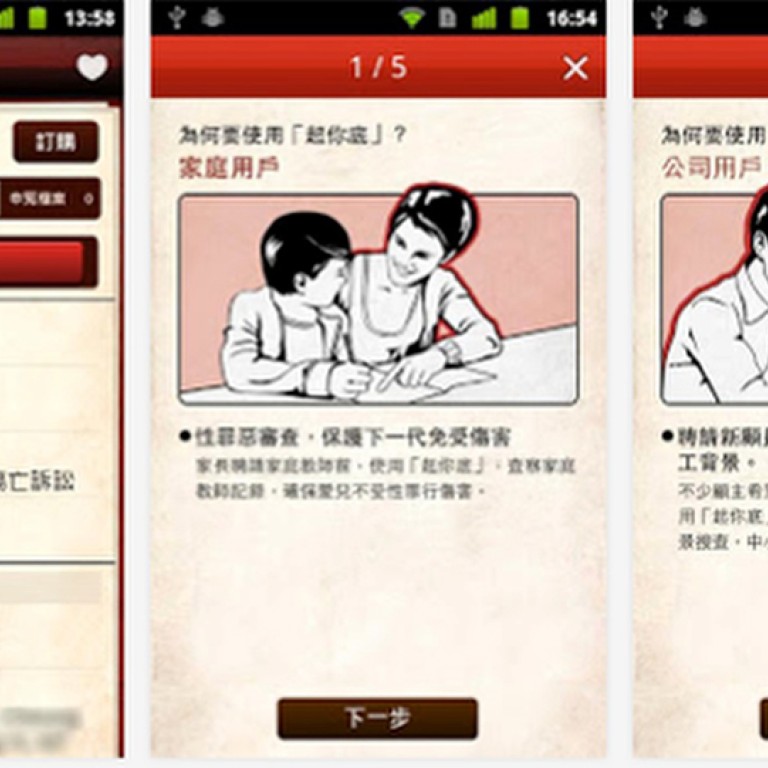
Privacy watchdog's move to stop data search app raises questions
The privacy watchdog's decision that a smartphone application providing access to individuals' litigation and bankruptcy information is a breach of privacy has raised questions about whether similar services and databases could also be breaking the rules.
The privacy commissioner on Tuesday said it found the Do No Evil app - which enables mobile phone users to search for a person's litigation and bankruptcy records simply by entering the person's name - to have infringed on people's privacy.
It ordered data collector Glorious Destiny Investments to stop supplying the app with information and began a compliance check on its other search services. It would be let off if it "rectified" its actions, but would face legal action if it repeated the offence, Privacy Commissioner Allan Chiang Yam-wang said.
Under the Personal Data (Privacy) Ordinance, anyone who uses sensitive personal data must respect the data subjects' privacy and comply with the ordinance's data protection principles.
In particular, one principle requires the data to be used only for the purposes for which it was collected or for a directly related purpose. But it remains ambiguous what the "original purposes" of collecting the data are.
A search by the showed that many profit-making companies offered similar data search services.
They included Central Business Information, which helps clients conduct searches on companies, land and vehicles, among others. And eeVoices, which helps employers with pre-employment checks, including verification of references and previous jobs, and checks on credit and criminal records. It was unclear if consent was sought from those targeted by the checks as both firms did not respond to the 's inquiries by press time.
Lawmaker Charles Mok urged the watchdog to release guidelines on the use of public information. "What about the use of information by the media or researchers? The watchdog's decision against the app seems to be protecting privacy, but what about its effect on public access to information?" he asked.

